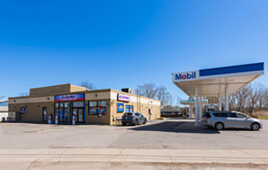“We’re not looking for a free ride. What we’re looking for is fair and reasonable,” notes 7-Eleven Franchisee Dennis Lane.
Thursday, Feb. 17, marks the eighth public hearing on debit and credit card swipe fees. The hearing, scheduled for 10 a.m. is set to be held in the House Subcommittee on Financial Institutions and Consumer Credit, and will review debit card swipe fee provisions included in the financial services reform law. Testifying on behalf of the Merchants Payments Coalition is Doug Kantor, general counsel for NACS, and David Seltzer of 7-Eleven.
On Wednesday, Feb. 16, the Merchants Payments Coalition organized a conference call to discuss the Durbin Amendment and the debate brewing on the issue of interchange, which marks the fastest growing expense over the last decade for small business owners, ahead of even rent and second only to the cost of labor.
Rep. Peter Welch (D-Vt.) who is on the forefront of the fight for interchange relief, noted that interchange fees burdening small businesses have tripled since 2001 even as the costs associated with electronic processing has gone down. While regulating interchange fees, the Amendment also makes exemptions to protect small banks and credit unions.
“In the Durbin Amendment, what we did is carve out a $10 billion exemption for the smaller banks and credit unions, so there is only about one credit union in the country that will be affected by this legislation. Our small banks will still have the opportunity to get a fair price for this,” Welch noted.
But big banks are fighting back against interchange regulation with arguments, such as that the $10 billion exception for smaller banks won’t work because Visa and MasterCard won’t allow a two-tier pricing structure (one for small banks and one for big banks). However, Welch noted Visa has already adopted the two-tier approach. Big banks and Visa and MasterCard also assert that even if these charges are lowered merchants will fail to pass the savings along to the customer. But Welch argued the law of competition will ensure that stores lower prices to match those of their competition.
Dennis Lane, a 7-Eleven franchisee in Quincy, Mass., agreed. “Any responsible retailer will reinvest this money by hiring new employees, and lowering the cost of goods. We need to remain competitive. The money saved will be passed along to better support the community.”
“We understand and accept as an industry that there is an expense in processing an interchange transaction,” Lane added. “We’re not looking for a free ride. What we’re looking for is fair and reasonable.”
As an example of how interchange affects retailers, Lane noted the profit he makes on the major Boston newspapers, such as the Boston Globe, Boston Herald and USA Today is six cents. The average cost of processing a transaction in a 7-Eleven store, including Lane’s, is 28 cents. If a customer pays for that paper with a debit card Lane is actually losing 22 cents on that transaction. “It would be cheaper to hand (him) the paper for free,” Lane noted. The same goes for coffee transactions. But Lane doesn’t turn these customers away. “That would be bad customer service,” he said.
What’s more, debit card use is on the rise, especially with teens, who don’t tend to carry cash. While credit cards account for 60% of interchange, debit now makes up 40% of interchange transactions. In fact, on average 80% of transactions made with plastic at 7-Eleven stores across the country are made with debit cards rather than credit, Lane noted.
Debit interchange is also growing at a faster rate than credit interchange—from 1998 to 2006 it grew 235%. But in the early 1990s debit interchange fees didn’t exist.
“Debit cards came into existence because it was expensive for banks to process checks so they introduced debit cards and convinced stores to add them—there was no interchange when debit was first introduced,” noted Doug Kantor, counsel to the Merchants Payments Coalition. But while the Fed did away with exchange fees on checks, swipe fees are soaring even though it costs less to process a debit transaction.
“There is no reason or justification for these (high) fees. Banks win every time someone uses a debit card. Banks save money. Everyone was much better off when these cards were introduced and there was no interchange,” Kantor added. But the Durbin Amendment does not propose something that drastic.
While Visa increased their network fees by 30% on merchants in the U.S. last year, two weeks later in Europe it cut debit card fees to 0.2% voluntarily, which is a less than the Fed has proposed, meaning that with the proposed legislation, swipe fees in the U.S. will still be higher than those charged in Europe, Kantor noted.
Under the proposal, merchants would pay an average of 12 cents or seven cents per transaction depending on the option that is passed—which is much less than the 28 cents Lane is paying now. This would save merchants $12 billion a year. Now overall debit card fees average $20 billion a year nationally.




